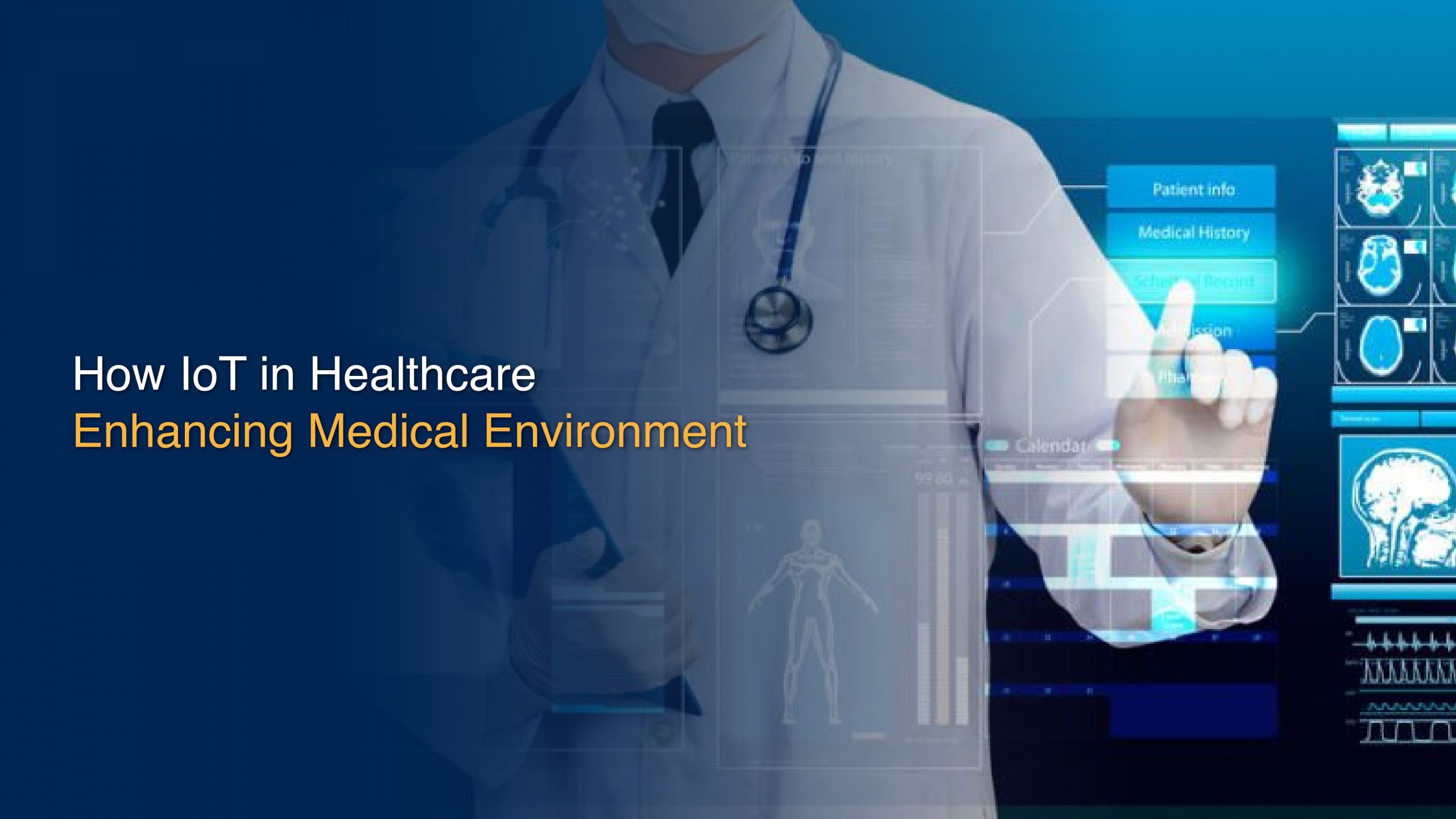The landscape of the healthcare sector is gradually transforming with every passing day. In this transformation, the Internet of Things is the biggest catalyst. With the momentum through which this technology is supporting the medical sector, it is improving medical procedures, healthcare functionalities, and patient care.
Opportunities for IoT innovation in the healthcare industry are constantly evolving. As medical facilities have unique challenges, IoT service providers are coming up with new ways to address them. Healthcare IoT Solutions are efficiently taking care of technical aspects in this industry.
IoT in healthcare refers to the vast network designed through extended internet connectivity into physical devices. These assets interact with each other over the internet and can also be controlled and monitored effortlessly even from a remote location.
What is IoT in Healthcare
IoT in healthcare industry is a network of connected devices used in a hospital, clinic, or other medical settings. Some of the common IoT-based devices are smart thermostats, automated lighting, security systems, digital signage, and many types of sensors. In fact, some of these devices play a unique role in patient care, comfort, and safety.
Overall, IoT in healthcare solutions involves medical devices integrated into an IoT framework. Healthcare-specific IoT devices are often usually known as medical IoT and the Internet of Medical Things (IoMT).
Let’s move ahead to know more about the advantages IoT brings to the healthcare industry.
Key Benefits of IoT in Healthcare
The benefits of IoT in healthcare are numerous and are making a positive impact on the overall industry.
-
Continuous Health Monitoring
Heart rate monitoring cuffs, glucometer, fitness bands, blood pressure measuring bands, and more advanced smart healthcare devices are available that offers real-time personalized health update to patients. Such monitoring can help people to monitor their regular calorie consumption, improve their exercise routine, recognize changing blood pressure, and many more. It is even more beneficial for elderly patients as it is important for them to track their health conditions on a daily basis. Smart healthcare devices make the lifestyle of old patients easier by allowing them to know about any possible life-threatening ailments in advance. It alerts the patient as well as their family members about any unexpected fluctuations in the patient’s health conditions.
-
Enhanced Patient Tracking
Hospitals, doctors, physicians, and nurses can track the health of patients through wearable and other IoT-based remote monitoring devices. These equipment are embedded with IoT sensors which support the health experts to track patients’ current medical status efficiently. Real-time tracking of patients can seamlessly enable treatment scheduling and alertness in case of immediate medical treatment.
IoT helps hospitals to keep a record of patients’ health history, current medical requirements, and probable future medical support seamlessly and systematically. The sensors of IoT devices can collect data from various devices that can monitor every minuscule improvement and deterioration in the patient’s health. Doctors and medical experts become more aware of patients’ conditions which helps them to take the needful action.
-
Streamlines Hospital Functionalities
Apart from the healthcare of patients, there are several other aspects where the IoT helps the medical industry to perform more efficiently. The biggest input of IoT in the healthcare sector is asset management. Objects like oxygen pumps, wheelchairs, defibrillators, nebulizers, or some other equipment; are tracked on a regular basis to know their real-time locations. These sensor-integrated assets enable hospital authorities to track their real-time location in just a few minutes. Medical staff located in different locations can be also traced easily with IoT technology.
One of the biggest advantages of IoT-based asset monitoring is the tracking of hygiene devices. As hospitals are vulnerable to infection, it is crucial to maintain hygiene for patients. The monitoring of hygiene devices ensures better patient protection.
-
Transparent Insurance Claims
Unfortunately, there are a lot of people who claim to have health issues to cover insurance claims. It causes massive losses for insurance companies. However, data collected through IoT devices can be used for checking the authenticity of claims. With the insight from IoT-driven data, false claims can be easily detected. It helps insurers to recognize the false prospects for insurance. If this solution is implemented properly, the genuine buyer of insurance will suffer less.
IoT devices can maintain transparency between insurers and customers in terms of underwriting, risk assessment processes, pricing, and claim handling. Owing to data-driven decisions in every insurance operation, patients can have visibility in the processes which maintain transparency for them and identify false claims by companies.
-
Helpful for Medical Data Research
One of the crucial IoT applications in healthcare is in medical research. As medical researches take many years to complete, leveraging IoT technology can save a lot of time. It can possible with the medical condition data which is used for statistical study. Therefore, not only IoT saves time but also reduces the cost of research. As a result, medical research can be bigger and better which can make complex treatments feasible in the future.
IoT can simplify the process of research. The technology can collect a massive volume of research data quickly. The main advantage of IoT-based data collection is accuracy. Utilizing this data can help medical professionals to manufacture better medicines to combat new diseases.
Wrapping Up
As IoT in the healthcare industry grows and its devices evolve, this sector will be more advanced, and will offer favorable patient outcomes, better experiences for patients and visitors, and improved work environments for healthcare professionals.
With more devices and data, industry professionals can gain new insights about diseases, treatment options, patient care, and treatment options. Access to data enables health professionals to discover new aspects of medical care.
Rejig Digital can assist modern enterprises in digitally transforming their operations. We cater our services across a wide variety of industries including manufacturing, automotive, BFSI, chemicals, FMCG, healthcare, pharma, power, and transportation.


